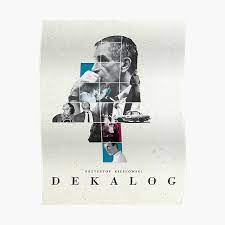As they note in their website, it is a film club podcast devoted to works of high artistic caliber and Catholic interest, exploring the 1995 Vatican film list proposing 45 important films, celebrating the centennial of cinema.
This is the link to the website: https://www.catholicculture.org/commentary/category/criteria/
Below are the notes about the podcasts and the links. Both films engage the value of the human person, and in different ways, the relationships with one another and God.

https://www.youtube.com/watch?v=uYdtpAoLjo8
This film makes us confront on a visceral level the horror of taking a human life, even the life of someone we might find despicable. It is the fifth installment of Dekalog, the famous Polish TV series inspired by the Ten Commandments.
Dekalog: Five, which was expanded into the feature-length A Short Film About Killing, coincided with an intense debate over capital punishment in Poland, and in the year of its release (1988) the nation finally suspended use of the death penalty.
Catholic film scholar Maria Elena de las Carreras often uses Dekalog: Five to teach her students at Cal State Northridge about the value of life. She brings a lively energy to the discussion along with a deep knowledge of Polish cinema and, in general, the work of filmmakers living in totalitarian regimes.
Thomas tracked Maria Elena down because of an article on Kieslowski she wrote for Crisis magazine twenty years ago—which, she tells us, she sent to Pope John Paul II, and received a letter from his secretary saying it had been read “with great interest”.
Nazarín (1958)
https://www.youtube.com/watch?v=l6ts3b0xyD0
One of the boldest inclusions on the 1995 Vatican film list comes from an atheist director well known for his anti-clerical films, Luis Buñuel.
His 1958 film Nazarín does not seek to discredit the Church by portraying an obviously hypocritical, venal or sensual priest. Rather, protagonist Fr. Nazario is a Quixote figure, unable to make any difference in this miserable world no matter how strictly he follows his religious code.
Film scholar María Elena de las Carreras returns to the podcast to talk about Buñuel (1900-1983) as an artist unable to escape his post-Tridentine Spanish Catholic upbringing. His vision replaces the supernatural with humanism, yet he does not believe even this can save us. For Buñuel, whatever moments of human kindness we may encounter along the way cannot change the fact that life is hell.
It is interesting to compare Nazarín with many other priest films, including Monsieur Vincent (1947); Diary of a Country Priest (1951); The Silence (2019); The Fugitive (1947); and Léon Morin, Priest (1961).


